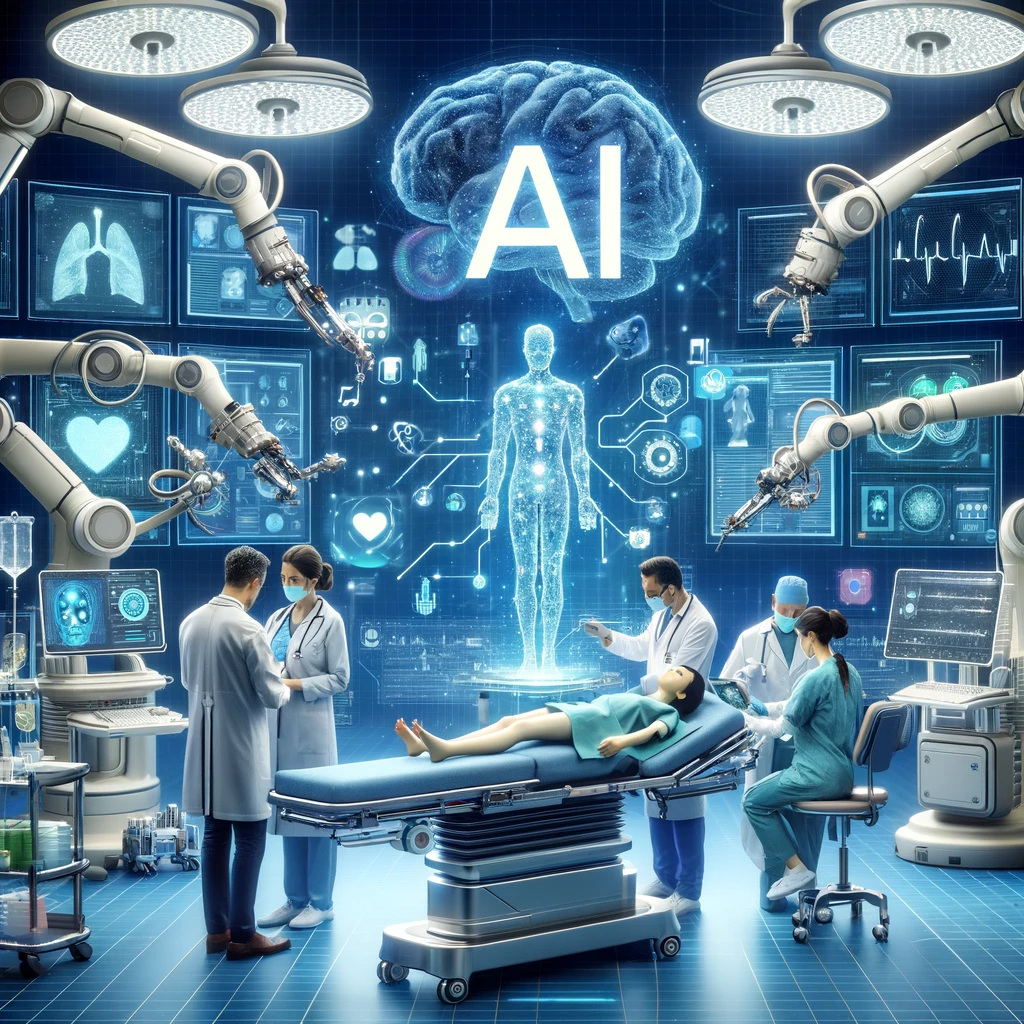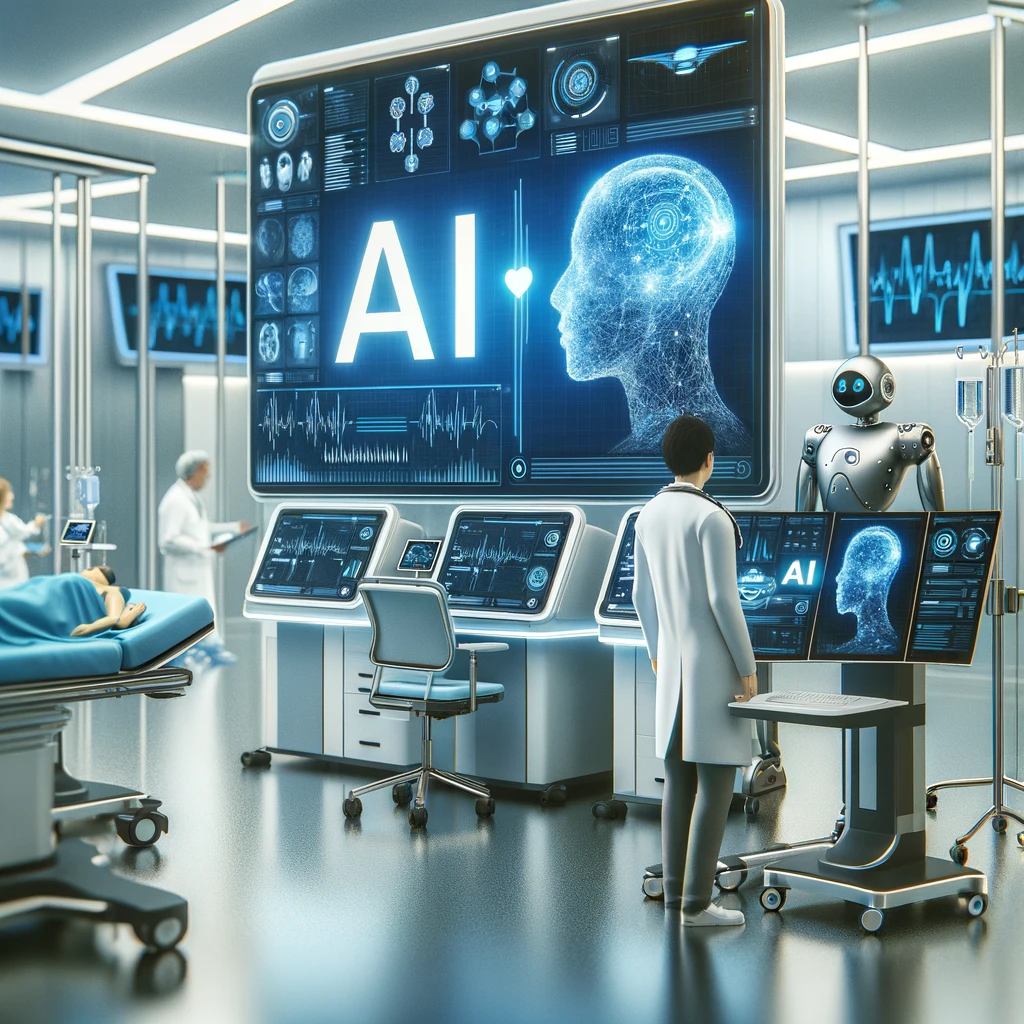As a new day begins in the world of medicine, we’re witnessing something truly groundbreaking: the integration of Artificial Intelligence (AI) with healthcare. Once the stuff of science fiction, this transformative technology now stands at the forefront of medical innovation. AI’s impact upon healthcare is nothing short of revolutionary, weaving its digital threads into the very tapestry of medical practice. With recent advancements like AI based diagnostic tools and smart patient care systems, the spotlight has been put on AI during discussions involving medicine. It is not a topic of interest anymore; it is the torchbearer to a new era of healthcare. This article takes you on an explorative traverse of the next five years unveiling a tale of how AI is set to redefine landscapes in healthcare. From enhancing diagnostic accuracy to personalizing patient care, we embark on an insightful expedition into AI’s future in medicine.
Diagnostics and Treatment Planning Revolutionized
As for diagnostics and procedures to plan the treatment of diseases, AI is still promising a breakthrough. The technology’s ability to read medical images almost to perfection opens way for a new era in disease diagnostics. For instance, presently AI algorithms are able to detect conditions from scans with accuracy that rivals if not surpasses the human expert ability. This to say the least is a milestone development both in the early detection of diseases as well as carrying it out more precisely than had ever been envisioned.
But the role of AI doesn’t stop at diagnosis, it extends into the very core of treatment planning to usher in an era of custom-made medicine. AI systems are being designed to analyze volumes of patient data – from genetic information to factors about their lifestyle – creating a treatment plan that suits the health profile of the particular individual patient. This individualized approach provides a future whereby treatments aren’t only effective, but is also very specific to the need of the individual.
Another frontier is the potential of AI in predicting progression. The AI can predict potential health risks that a patient is likely to face and thus intervene early enough based on analyzing patterns from patient data. This does not only improve the end results for patients but even reduces the burden on healthcare systems because diseases will be nipped before they grow beyond control.
Over the next five years, we should hope for new developments related to diagnostics with the help of AI and planning of treatments. These may represent more customized systems for the determination of difficult diseases as well as integration of AI into the flow of regular clinic work where personalized medicine is no longer a dream but a concrete reality.
This part will, through extensive research with a touch of experienced insight, try to highlight the life-changing impact that AI is expected to have on diagnostics and treatment planning. Using case scenarios and future predictions for advances, this part intends to be an exciting revelation of how AI is transforming medicine.
Better Patient Care and Medical Research
In the fast changing canvas of healthcare industry, Artificial Intelligence (AI) is emerging as innovative flame altering patient care and medical research dramatically. Perhaps one of the greatest advances witnessed is that of advent of AI Surgeries using robotic assistance. These robotic systems, a favorite being the da Vinci Surgical System, allow for precision and control beyond a human ability, thus decreasing patient recovery time as well amount of errors committed namely due to surgeon’s imprecision.
AI’s impact spills over beyond the operating room. It revolutionizes patient monitoring through wearable tech and smart devices which track vital signs, alerting healthcare providers of potential health issues before they spiral out of control. Proactive care epitomizes patient-focused healthcare where timely intervention is guaranteed, securing better health outcomes.
AI-driven virtual health assistants form yet an additional frontier in patient care. They find a wide range of application including reminders to taking medicine, helping them do better with medications up to even offering mental health support. Their use enhances accessibility to knowledge on health-related across demographical gaps as well as in remote areas with poor healthcare reach.
AI fast tracks the drug discovery and disease understanding in medical research. Machine learning algorithms analyze huge datasets to discover leads of therapeutic compounds in a fraction time taken given traditional routes. Decoding complex diseases such as Alzheimer’s and cancer is another role where AI could play a crucial part to offer hope for breakthrough treatment.
Additionally, even much more development is being promised in the coming years. Medicine can be fully personalized and treatment accommodated by genetic profile, with assistance through AI becoming a possibility. The advent of AI promises the dawn of healthcare evolution as its precision enables it to raise the practice of patient-focused care from a concept to a reality.

Navigating the Challenges: Ethics, Security and Regulation
However much the integration of AI in healthcare ushers a new dawn in medical advancement, it does go together with substantial challenges in ethics, security, and regulation. On matters ethics, consideration comes first when making a decision. Who exactly should be ultimately responsible in the decision-making process with regard to AI-driven healthcare? The responsibility is in ensuring that biases do not exist in the AI algorithms and at the same time, preserving the autonomy of patients.
Also, an important point is data security. Healthcare becomes more and more digitalized and requires AI analysis so keeping patient data compromising seems to be even more important issue that previously. It consists not only in actual cyber security policy but also in education of healthcare specialists and patients regarding the data privacy rights for them.
AI’s progress raises questions on the privacy of the patients as well. Since private health data is processed by AI systems, information confidentiality constitutes yet another balance that has to be highly handled. Making certain that applications of AI meet privacy laws such as HIPAA can go a long way in preserving the trust of patients.
Contributions to this should come from the necessary regulatory frameworks that should evolve along with AI technology in order to ensure safe, effective use can be made of it in healthcare. Such regulations must embrace the complex application spectrum of AI whilst also posing a backdrop against which innovations can occur.
If AI is going to fully realize its potential in changing the healthcare industry, then these challenges have to be addressed. As we continue to forge ahead into this new frontier, the aim always has to be united as we strive to create a system that isn’t just superior and effective but an ethical, safe and controlled one.
If you’d like to read more of my posts on AI, click here.


Great insights! We always appreciate valuable insights like these. Thanks for sharing!
Healthcrm.ai